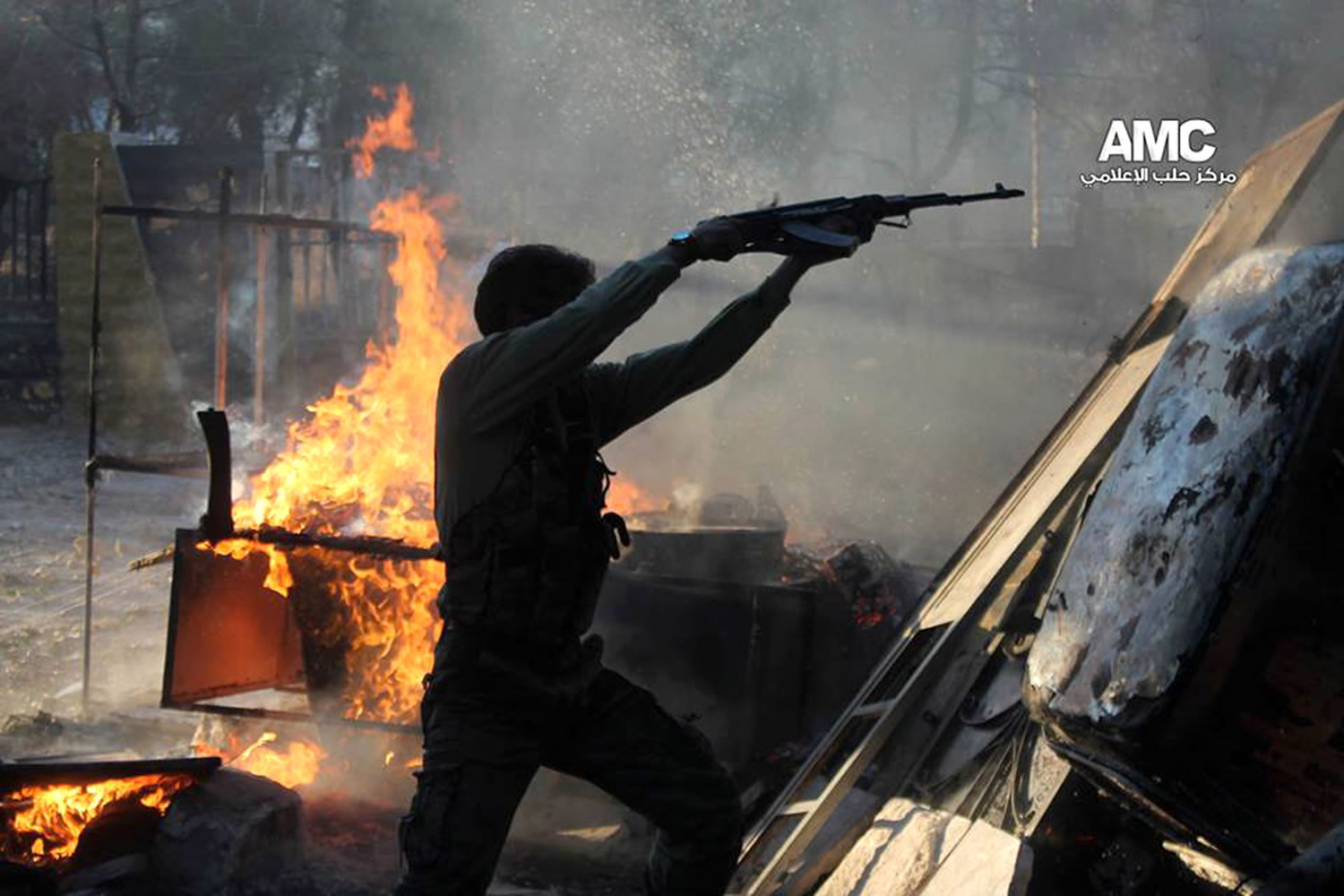BEIRUT — Forces loyal to Syrian President Bashar Assad have firmly seized the momentum in the country’s civil war in recent weeks, capturing one rebel stronghold after another and triumphantly planting the two-starred Syrian government flag amid shattered buildings and rubble-strewn streets.
Despite global outrage over the use of chemical weapons, Assad’s government is successfully exploiting divisions among the opposition, dwindling foreign help for the rebel cause and significant local support, all linked to the same thing: discomfort with the Islamic extremists who have become a major part of the rebellion.
The battlefield gains would strengthen the government’s hand in peace talks sought by the world community.
Both the Syrian government and the opposition have said they are ready to attend a proposed peace conference in Geneva that the U.S. and Russia are trying to convene, although it remains unclear whether the meeting will indeed take place. The Western-backed opposition in exile, which has little support among rebel fighters inside Syria and even less control over them, has set several conditions for its participation, chief among them that Assad must not be part of a transitional government — a notion Damascus has roundly rejected.
“President Bashar Assad will be heading any transitional stage in Syria, like it or not,” Omar Ossi, a member of Syria’s parliament, told The Associated Press.
The government’s recent gains on the outskirts of the capital, Damascus, and in the north outside the country’s largest city, Aleppo, have reinforced Assad’s position. And the more the government advances, the easier it is to dismiss the weak and fractious opposition’s demands.
“Assad wants to go to Geneva with credit, not debit,” said Hisham Jaber, a retired Lebanese army general who heads the Beirut-based Middle East Center for Studies and Political Research. “He is trying day after day to gain on the battlefield, and when he goes to Geneva he can say, ‘OK, here’s the situation — we are strong on the field. What do you have?’ “
The government has made its biggest gains in the suburbs south of Damascus, where army troops backed by guerrillas from the Lebanese Shiite Hezbollah group and Shiite militants from Iraq have captured five towns since Oct. 11. The latest to fall was Hejeira, which army troops swept through Wednesday, just days after capturing the adjacent suburb of Sbeineh.
The troops were quickly followed by state television cameras eager to broadcast the victory: a two-starred government flag triumphantly planted amid bombed-out buildings, twisted rebar and rubble-strewn streets.
In northern Syria, Assad’s forces have captured two towns this month — Safira and Tel Aran, southeast of the battlefield city of Aleppo — and have retaken a military base near Aleppo’s international airport.
Aleppo, the country’s largest city and former commercial capital, is a major prize in the war. Assad’s military and the rebels have been battling over it since the summer of 2012, carving it up into rebel- and government-held areas and leaving much of the city in ruins.
In some ways, the recent run of government victories fit into the regular back-and-forth rhythm of the conflict over the past nearly three years, with the pendulum swinging in Assad’s favor at the moment.
But the government advances around Aleppo hold greater trouble for the opposition since they suggest the rebels’ grip on the north — much of which fell to anti-Assad fighters over the past year — is far more tenuous than once believed.
A confluence of factors has increasingly hampered the opposition’s war effort in the north.
The rebels have been crippled by infighting since the al-Qaida-linked Islamic State in Iraq and the Levant aggressively pushed into rebel-held areas of the north this year. Fighters from the extremist group, most of them foreigners, have clashed repeatedly with more moderate rebel brigades, leaving scores dead on both sides.
Rebel groups, particularly the Islamic State but more mainstream factions as well, also have been engaged in a brutal side conflict with Syria’s Kurdish minority, which has a large presence in the northeast and parts of Aleppo province.



